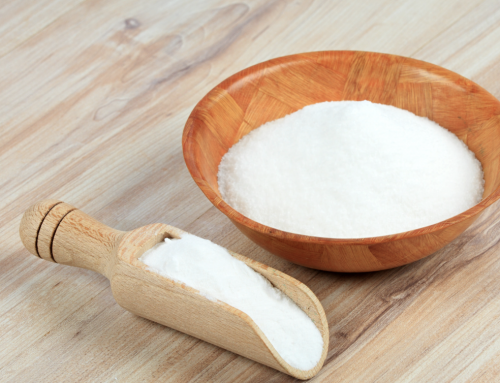Managing Persistent Vomiting During Pregnancy: Causes, Consequences, and Solutions
Pregnancy is a beautiful journey, but it can also bring about a host of challenges, and one of the most trying is persistent vomiting. Often linked to magnesium and vitamin B deficiencies, particularly vitamin B6, this condition can last for weeks, even the entire pregnancy in rare cases. In this blog post, we will explore the causes and consequences of persistent vomiting during pregnancy and offer modern solutions to help expectant mothers find relief.
Understanding the Consequences
Persistent vomiting can lead to various complications, making it crucial to address the issue promptly. Some of the potential consequences include:
- Dehydration: Frequent vomiting can cause significant fluid loss, leading to dehydration. Dehydration can be especially dangerous during pregnancy as it affects both the mother and the baby.
- Weight Loss: Uncontrolled vomiting can result in unintended weight loss, posing risks to the mother’s health and the baby’s development.
- Toxemia: Vomiting can hinder the body’s ability to eliminate toxins through the kidneys, potentially leading to toxemia. This condition can have severe consequences for both the mother and the baby.
- Jaundice and Kidney Issues: In some cases, persistent vomiting can cause jaundice, reduced urine output, and the presence of proteins like albumin and even blood in the urine, all of which indicate a buildup of toxins and potential kidney problems.
- Stomach Bleeding: When vomiting is severe, it can cause stomach bleeding, manifesting as vomitus that resembles coffee grounds. This is a critical situation requiring immediate attention.
What You Can Do
Managing persistent vomiting during pregnancy requires a proactive approach. Here are some modern strategies to address this challenging condition:
- Vitamin B6 Supplementation: Vitamin B6 deficiency is often associated with persistent vomiting. If you suspect a deficiency, consult your healthcare provider for guidance on vitamin B6 supplements. They can recommend an appropriate dosage, which is generally safe during pregnancy.
- Lobelia Tincture: This natural remedy can help alleviate tension and reduce the spasmodic triggers of vomiting. Apply a diluted lobelia tincture to your wrists, underarms, and abdomen for relief.
- Hydration and Nutrition: Combat dehydration by staying well-hydrated with clear fluids. If you find it challenging to keep liquids down, consider an enema with clear water or herbal teas like squawvine. Consuming several small meals a day can help maintain your energy levels. Regular protein consumption is essential in pregnancy (learn more here)
- Dietary Choices: Avoid greasy foods, or any foods that don’t agree with your taste buds during bouts of nausea. Opt for lighter, more easily digestible options.
- Supplements: If you can tolerate them, consider increasing your intake of B complex vitamins, vitamin C, and zinc. Consult your healthcare provider for specific recommendations based on your needs.
- Olive Oil Nourishment: If you’re experiencing signs of starvation and intravenous fluids are not an option, try massaging olive oil onto your skin. This can provide some nourishment and hydration.
- Temperature Matters: Experiment with the temperature of your foods and drinks. Very hot or icy-cold options are often better tolerated than lukewarm items.
The Role of Magnesium
Now, let’s delve into why magnesium is particularly relevant in managing persistent vomiting during pregnancy. Magnesium is a mineral that plays a vital role in muscle relaxation and nerve function. When you’re experiencing persistent vomiting, your body may lose magnesium, exacerbating muscle tension and increasing the severity of nausea and vomiting.
Supplementing with magnesium can help relax your muscles, including those in your digestive tract, potentially reducing spasms and vomiting triggers. It’s essential to consult your healthcare provider before taking magnesium supplements during pregnancy to determine the appropriate dosage and ensure it’s safe for your specific situation.
Please see video below – Barbara O’Neil – Magnesium Deficiency
Why Avoid Supplements with Fillers and Binders During Pregnancy?
When considering supplements during pregnancy, it’s crucial to be diligent about the quality and composition of the products you choose. One of the primary reasons to steer clear of supplements containing fillers and binders is to prioritise the safety and health of both the expectant mother and the developing baby. Here’s why supplements with fillers and binders are generally not recommended:
1. Purity and Potency Concerns
Fillers: Fillers are inactive substances added to supplements to bulk up the product or make it easier to manufacture. These can include ingredients like starch, cellulose, or silica. While fillers themselves are not necessarily harmful, they can dilute the potency of the active ingredients in the supplement. During pregnancy, it’s essential to receive the full intended benefits of any supplement you take to support your health and your baby’s development.
Binders: Binders are compounds that hold the ingredients of a supplement together, ensuring they stay in tablet or capsule form. Common binders include gelatin or various plant-based materials. Like fillers, binders don’t contribute to the supplement’s nutritional value. However, they can sometimes hinder the body’s ability to absorb the active ingredients efficiently.
Fillers and binders can potentially hinder the body’s ability to absorb active ingredients from supplements for several reasons:
Digestive Interference: Some fillers and binders may form a physical barrier around the active ingredients in a supplement, delaying their release in the digestive tract. This delay can limit the time available for nutrient absorption in the small intestine, where most absorption occurs.
Reduced Bioavailability: Certain fillers or binders may chemically interact with the active ingredients, reducing their bioavailability. This means that even if the nutrients are absorbed, they may not be as effective in supporting health and fetal development as intended.
2. Mitochondrial Impact
Mitochondria are the powerhouses of our cells, responsible for producing energy in the form of adenosine triphosphate (ATP). They play a crucial role in energy metabolism, and any interference with their function can have far-reaching consequences. Fillers and binders might indirectly affect mitochondria in the following ways:
Zinc Depletion: Some fillers, such as phytates found in certain grains and legumes, can bind to zinc, making it less available for absorption. Zinc is a vital mineral for overall health and immune function, and its deficiency during pregnancy can have adverse effects.
Oxidative Stress: Fillers and binders that interfere with nutrient absorption may indirectly contribute to oxidative stress. Oxidative stress can damage cellular structures, including mitochondria, potentially impairing their function and energy production.
Inflammation: Chronic inflammation resulting from poor nutrient absorption can negatively impact mitochondrial health. Inflammation can lead to mitochondrial dysfunction, disrupting energy production and overall cellular function.
https://www.ncbi.nlm.nih.gov/pmc/articles/PMC4136529/
3. Potential Mitochondrial Penetration
While the direct penetration of fillers and binders into mitochondria is not a common phenomenon, there are instances where certain substances can penetrate cell membranes, potentially reaching the mitochondria:
Nanoparticles: Some fillers, binders, or contaminants in supplements may be present in nanoparticle form, which can allow them to penetrate cell membranes, including mitochondrial membranes. Once inside the mitochondria, these foreign substances can disrupt mitochondrial function.
It’s important to note that the likelihood of fillers and binders directly affecting mitochondrial function in this manner is relatively low. However, the broader concern lies in how these additives can indirectly contribute to oxidative stress, inflammation, and nutrient deficiencies, all of which can negatively influence overall cellular health, including that of mitochondria.
Seek Professional Help





